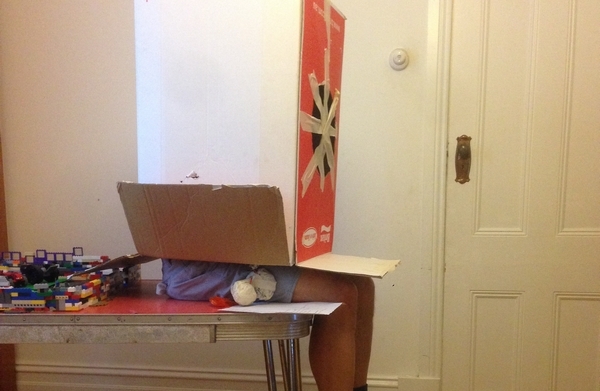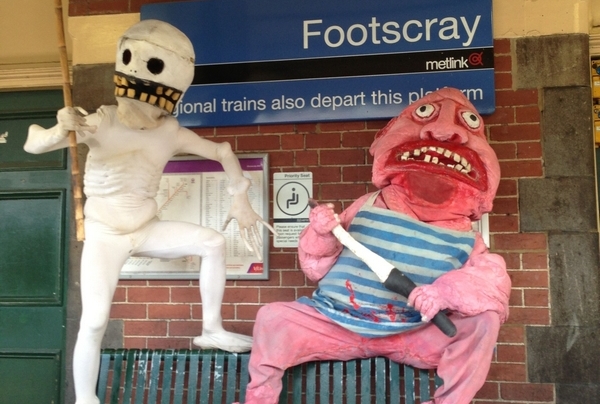“It’s in its clinical trial phase,” Woods says on the use of altered states of consciousness in healing mental disorders, particularly among returned soldiers suffering combat stress. “There’s been a successful US trial, and it’s gone larger scale in the US. A thousand people have now been involved. Ultimately, it will become available in the UK and Australia as well.” According to Woods if you go back far enough through the history of the development of MDMA, it was always intended for therapeutic use, as was LSD before it became inextricably linked with the counter-culture of the ’60s and consequently losing respectability. “MDMA was originally developed for use in marriage therapy,” notes Woods.
Give Me Your Love is the second play in a trilogy of works written and performed by Woods and partner-in-theatre and other half of Ridiculusmus, Jon Haynes. As well as exploring complex mental health issues, the works feature a healthy dose of humour. The first play in the trilogy was the unforgettably titled The Eradication of Schizophrenia in Western Lapland (about exactly that), where Ridiculusmus collaborated with Dr. Ben Sessa, author of The Psychedelic Renaissance and founder of Breaking Convention, the only UK psychedelic medical convention. “He’s the expert in this area, the voice of someone deep within the psychiatric world,” says Woods. Woods’ own father and brother struggle with impaired mental health so it’s a subject close to his heart; both plays in the trilogy draw on personal family histories as well as stories Haynes and Woods gathered in their development “Theatre is a place for human stories, before intellect and ideas,” notes Woods, adding that the play is informed by the latest research into the use of psychotropic drugs in treating mental disorders. Along with Dr. Sessa, Ridiculusmus also work with Steve McDonald, an Australian-based war veteran whose organisation, PRISM, is lobbying for MDMA trials in Australia.
Fittingly, the protagonist in Give Me Your Love is war veteran Zach, suffering from hyper-vigilant anxiety and insomnia. He has retreated to the inside of a cardboard box in his home in order to outwit enemies determined to send him crazy. The fact that Zach is a veteran is secondary to the story, however, and Woods is keen for a wider awareness of post-traumatic stress issues to grow and the associated stigmas to diminish: these sorts of mental disorders are not only suffered by soldiers.
“Hopefully the play will have a universal interest, despite the situation being seen as an army situation,” he says. Woods wants the condition known as Post Traumatic Stress Syndrome to be considered as an injury as opposed to an aberration. “The name is contentious and it attracts stigma. It’s not a disorder; rather than a psychopathology it’s a natural response to witnessing or being involved in an extremely stressful situation,” says Woods. He’s also keen to foster a more accurate public understanding of substances like MDMA, associated in many people’s minds as a street drug laced with potentially lethal additives rather than as a resource to be used in a sensitive approach to creating mental well-being. “As far as I know people who have died from taking ecstasy is because they overheated due to excitement,” he ventures. “Pharmaceutically prepared MDMA isn’t mixed with ketamine or things like that. These drugs are just tools. They allow access to traumatic experiences so that they can be dealt with through dialogue.”
Woods believes he is taking a theatrical risk in Give Me Your Love, as the audience never get to see Zach’s face. “It’s an audacious choice – not showing anyone’s face – but that’s our artistic offer,” he says. “People can like it or they can be challenged by it, be switched on. It seemed like a good image. It’s come together well. The audience will reflect on the fact that we’re all in a black box, in the theatre, and it suggests metaphorical boxes of other kinds.” The play is set in Port Talbot, an unsightly industrial town in south west Wales. Environment has a big impact on mental health, Woods says. “The house is associated with his stress. We’ve placed our character in this environment – a narrow terrace, a gutted empty house with the rain coming under the door, in an area where the streets are grim and low-lying steel works and petrochemical factories create this foul smell.”
While the director states he’s naturally emotionally robust, making theatre helps with anything he might have to deal with personally. “If I’m angry or stressed and I’m doing a play, I can exorcise feelings through work. I can channel feelings in the process of creating theatre.”
BY LIZA DEZFOULI







